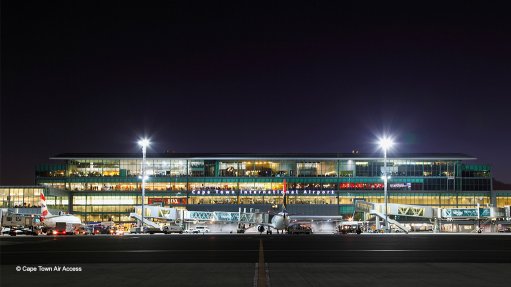Govt procurement anniversary
On October 2, as I sat down to write this piece, the World Trade Organisation (WTO) had just released its new webpage to mark the dual anniversary of its plurilateral Agreement on Government Procurement (GPA).
The first version of the GPA was adopted in 1981 and entered into force during the days of the General Agreement on Tariffs and Trade (GATT), while the first WTO GPA entered into force in 1996, over a year after the creation of the WTO, on January 1, 1995.
The dedicated webpage provides key facts and figures about the GPA, along with a timeline of its evolution, a photo gallery, video messages from the GPA community and other features.
The GPA is a plurilateral agreement within the framework of the WTO, meaning not all WTO members are parties to it. The GPA has 21 parties representing 48 WTO members, counting the European Union and its 27 member States as one party. Another 35 WTO members and four international organisations participate in the Committee on Government Procurement as observers. Eleven of the WTO members with observer status are in the process of acceding to the GPA. South Africa is neither a party nor an observer; it evaluates tenders based on its Preferential Procurement Policy Framework Act of 2000 and its implementing regulations.
The GPA is an attempt to liberalise government procurement, which is exempted from the rules of national treatment, nondiscrimination and most-favoured nation under both the GATT and the General Agreement on Trade in Services.
The aim of the GPA is to open up government procurement markets among its parties. Consequently, the parties have opened up procurement activities estimated at over $1.7-trillion annually to international competition.
In 2012, a revised version of the GPA (also known as GPA 2012) was adopted. It is based on the principles of nondiscrimination, transparency and procedural fairness. Its main elements are: guarantees of national treatment and nondiscrimination for the suppliers of parties to the GPA with respect to the procurement of covered goods, services and construction services as set out in each party’s coverage schedules; provisions on special and differential treatment for developing and least-developed countries; detailed procedural requirements on the procurement process to ensure that covered procurement is conducted in a transparent and competitive manner that does not discriminate against the goods, services or suppliers of other parties, avoids conflicts of interest and prevents corrupt practices; and provisions regarding the application of the WTO’s Dispute Settlement Understanding in this area.
The GPA was first negotiated in 1979, during the Tokyo Round of trade negotiations under the GATT, and entered into force in 1981, before being amended in 1986 with extended scope and coverage of government entities. The amended GPA took effect in 1988. In April 1994, the GPA was signed in Marrakesh, as a result of the Uruguay Round of negotiations and at the same time as the agreement establishing the WTO. On January 1, 1996, the so-called GPA 1994 entered into force. In December 2011, the renegotiation of the GPA 1994 ended and in March of the following year the new GPA was adopted. In 2014, the GPA 2012 came into force for the parties to the GPA 1994 that had ratified the GPA 2012. On January 1, 2014, the GPA 2012 came into effect for Switzerland, the last party to the GPA 1994 that still had to accept the GPA 2012. On the same day, the GPA 2012 replaced the GPA 1994 for all parties.
The parties will continue improving the GPA. The GPA 2012 states that the parties shall undertake further negotiations to progressively reduce and eliminate discriminatory measures and extend its coverage to the greatest extent possible.
Could South Africa’s noninvolvement in the GPA siginfy its industry’s lack of competitiveness?
Article Enquiry
Email Article
Save Article
Feedback
To advertise email advertising@creamermedia.co.za or click here
Announcements
What's On
Subscribe to improve your user experience...
Option 1 (equivalent of R125 a month):
Receive a weekly copy of Creamer Media's Engineering News & Mining Weekly magazine
(print copy for those in South Africa and e-magazine for those outside of South Africa)
Receive daily email newsletters
Access to full search results
Access archive of magazine back copies
Access to Projects in Progress
Access to ONE Research Report of your choice in PDF format
Option 2 (equivalent of R375 a month):
All benefits from Option 1
PLUS
Access to Creamer Media's Research Channel Africa for ALL Research Reports, in PDF format, on various industrial and mining sectors
including Electricity; Water; Energy Transition; Hydrogen; Roads, Rail and Ports; Coal; Gold; Platinum; Battery Metals; etc.
Already a subscriber?
Forgotten your password?
Receive weekly copy of Creamer Media's Engineering News & Mining Weekly magazine (print copy for those in South Africa and e-magazine for those outside of South Africa)
➕
Recieve daily email newsletters
➕
Access to full search results
➕
Access archive of magazine back copies
➕
Access to Projects in Progress
➕
Access to ONE Research Report of your choice in PDF format
RESEARCH CHANNEL AFRICA
R4500 (equivalent of R375 a month)
SUBSCRIBEAll benefits from Option 1
➕
Access to Creamer Media's Research Channel Africa for ALL Research Reports on various industrial and mining sectors, in PDF format, including on:
Electricity
➕
Water
➕
Energy Transition
➕
Hydrogen
➕
Roads, Rail and Ports
➕
Coal
➕
Gold
➕
Platinum
➕
Battery Metals
➕
etc.
Receive all benefits from Option 1 or Option 2 delivered to numerous people at your company
➕
Multiple User names and Passwords for simultaneous log-ins
➕
Intranet integration access to all in your organisation
















